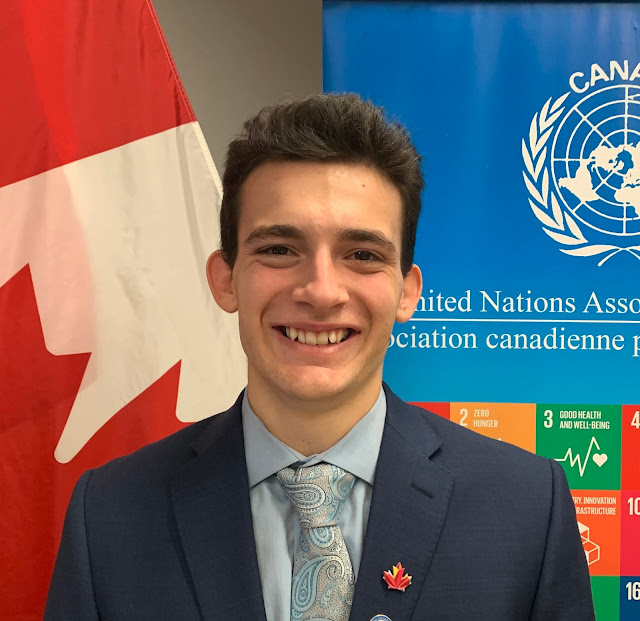Five ways to live your feminist life abroad
Written by Zara Raquel
Hi! I’m a Canadian/Spanish graduate student, currently
working as a Junior Professional Consultant in Gender Reporting for the United
Nations Development Programme in Kigali, Rwanda. Nice to meet you!
In this post, I would like to share some
things I’ve learned in my first couple of months living so far away from home.
Specifically, I’ve been interested in ways that I can continue living my
feminist life in a country that has significantly different values.
Before we begin, let’s clarify the
rationale behind “my feminist life.” While some may perceive feminism as a
dirty word, the roots of feminism lie in the pursuit of equality between women
and men. By taking a deeper look, we realize that the labels of “woman” and
“man” create false binaries that oversimplify our perspective on equality. To
widen this perspective, many feminists take an intersectional approach[1], which
examines equality at the intersection of many identities, including racialized
status, class, ability, culture, sexuality, and more. My tips are all about the
intersectional feminist approach to life.
 |
| Zara Raquel (University of Ottawa - Faculty of Social Sciences) with UNDP Rwanda colleagues Germaine and Egide |
Without further ado, here are my 5 ways to
live your feminist life abroad:
First, let go of
assumptions.
One of the most powerful tenets of feminism,
in my opinion, is that what we initially believe to be true is usually coloured
by subconscious ideas that are rooted in prejudice. By this logic, it’s not
only healthy to question our initial assumptions, but it is actually
imperative.
While living abroad, I’ve learned to let go
of the idea that I know how others should live, what ‘real’ development looks
like, or what marginalized groups need. I’ve learned that my Western ideas of
democracy and freedom are not necessarily what everyone in the world is
striving for, nor what everyone in the world should strive for.
Second, live your
truth.
There are few more powerful tools at your
disposal than being unapologetically YOU. For instance, I don’t want kids. I
haven’t for many years, and I don’t see myself changing that decision anytime
soon. When people ask me when my partner and I are going to start having kids,
I unapologetically state that we don’t want any.
I
believe strongly in people’s right to bodily
autonomy, and as such, to a biological woman’s right to dictate what
happens to her uterus. It’s important to remind people how infantilizing it is
to tell a grown person that she will likely “change her mind”. Shockingly, my
purpose in life is not tied to being a wife or mother.
Third, learn how to
say “no”.
One thing I always encounter when
travelling is the experience of random people demanding my time and entering my
personal space. This is particularly true when I either look like a tourist (i.e., being white in a predominantly Black
country) or act like a tourist (i.e.,
get lost and have to wander aimlessly, which happens more often than I care to
admit).
This experience has forced me to develop a
stronger backbone. When people approach me or yell at me from a distance, it is
my choice whether or not to respond. If
someone randomly approaches and begins talking to me, I can firmly tell them
NO.
In a world where women are expected to be
constantly available, willing to help, and polite, it is a feminist act to tell
someone that you are, in fact, not at their disposal at a moment’s notice.
Fourth, don’t
identify as an ‘expat’[2].
As a white person travelling to countries
that were former colonies, it is quite easy to fall into the “expat trap”. The
term expat (short for expatriate) is a classist and often racist term. Need
further explanation? Check out this article[1] .
Identifying as (and subsequently acting
like) an expat can be tempting since white people tend to be perceived as, and
treated as, superior. While living abroad, try to challenge the ways in which
people interact with you, and avoid abusing the unearned power that may result
from your privilege.
Fifth, seek help when
needed.
Travelling and living abroad can be a
challenging experience. I personally have experienced periods of time where I feel
either disconnected from my life back home or from my life here. In addition,
having to constantly navigate new situations and be denied the comforts of home
can take its toll.
In a neoliberal,
pull-yourself-up-by-your-bootstraps world, seeking help can be a radically
feminist action. For good onlinecounselling, try BetterHelp[2] [3].
Living abroad
as a feminist can admittedly be a challenging experience. When it becomes
difficult to stick to your ideals, that’s when it’s more important than ever to
do so. The obstacles I’ve faced have forced me to reexamine my perspective and
rethink my approach to some aspects of life. By experiencing this country on
the other side of the world, I can now include a new perspective in my feminist
life!
[1] Important to note that intersectionality belongs to Black women and
has deep roots in anti-racism work. Black women, being marginalized by both
their gender and race found that both white feminism and traditional anti-racism work ignored their unique perspective.
Hence, an intersectional approach to feminism!
Author: Zara Raquel
University of Ottawa - Faculty of Social Sciences
Author: Zara Raquel
University of Ottawa - Faculty of Social Sciences

